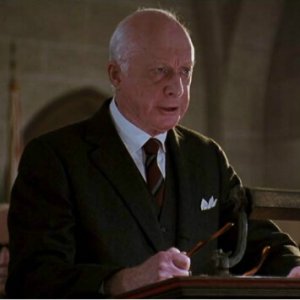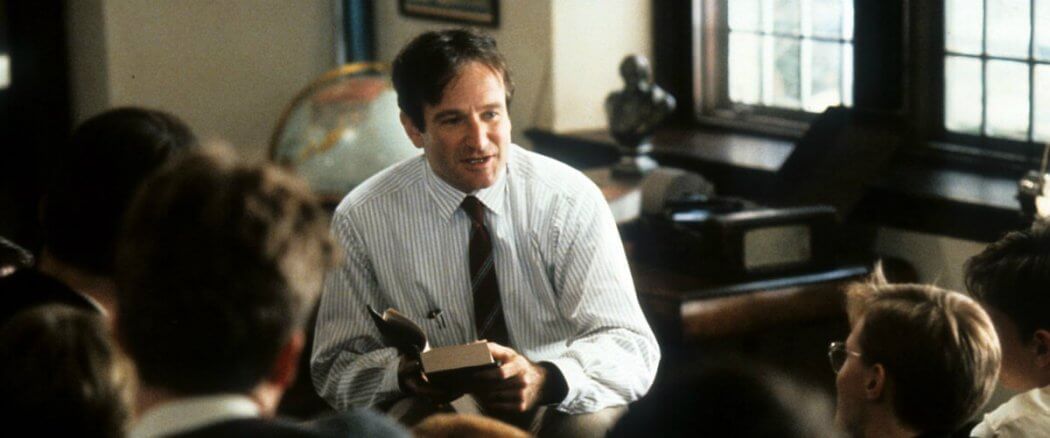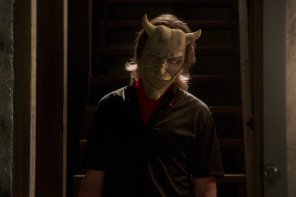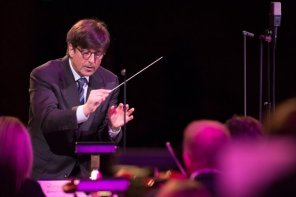Poets, like prophets, are said to be guided by a muse, in some cases THE muse. In Ireland it was thought that poets, especially the great poets, folk healers, and others with knowledge beyond that of the common world were taken by the trouping faeries for seven years only to return gifted in their own peculiar way. We have certainly lost this, for various reasons, but for some reason this sense of awe and wonder, this sense of magic or the mystery of why, faded to a sterile algorithm of how and mechanism.
We are no different than any other age in thinking ourselves advanced in knowledge of the natural world and of science, but we are different in our disillusionment of wonder. We know so much about the clockwork that we lost interest in its beauty, and its intricacy. Dead Poets Society, the 1989 prep-school drama starring Robin Williams as the inspiring Mr. John Keating dwells in this battlefield of the mind.
Paper and Ink Trophies
Welton Academy is the image of excellence, a place built on tradition, expectation, and achievement. None of these are inherently wrong, but the academy seems to have lost sight of its original purpose in education – no longer does it pursue excellence, but it pursues the production of perceived excellence i.e. graduates attending ivy league schools, becoming doctors, lawyers, businessmen, and bankers. There is a devaluation of the nobility of all callings in this because of the prestige factor, and Welton has perfected the formulaic teaching that leads not to knowledge, but to paper and ink trophies.
 This has happened in varying degrees throughout the ages. It seems that this way of thinking permeates any and all social structure at some point– the church at the time of reformation, our current education system relegated to “measurable” and standardized testing (God forbid we pursue knowledge, truth, and beauty when we must create productive members of society), anything really; it just needs to pass enough generations to transform the spirit of a thing into a mechanism.
This has happened in varying degrees throughout the ages. It seems that this way of thinking permeates any and all social structure at some point– the church at the time of reformation, our current education system relegated to “measurable” and standardized testing (God forbid we pursue knowledge, truth, and beauty when we must create productive members of society), anything really; it just needs to pass enough generations to transform the spirit of a thing into a mechanism.
The 19th and 20th century were filled with thinkers concerned with where this loss would take us; even the great thinkers of atheism worried where their dogmas would lead: Nietzsche feared the violence of his philosophy realized (as did Darwin), Huxley gave us A Brave New World, Orwell 1984 and Animal Farm, T.S. Eliot recanted at the foot of the cross after coming out of the yellow cat-like fog, but fewer authors rendered so deftly the root of these problems than C.S. Lewis in The Abolition of Man.
The Abolition of Man
In The Abolition of Man Lewis addresses an observation made while reviewing (at the request of the authors) a grammar school textbook on literature. Lewis voices and confronts his concern of language’s power, and society’s tendency to dismiss verbiage as “close enough.” Lewis is keenly aware that a slight shift in teaching a child values will lead to a dramatically different outcome at the end of things.
Keating in Poets takes up the same cause: “This is a battle, and the casualties could be your hearts and souls.” In many respects I consider this the metaphysical counter-punch to a willingness to conform to anything but the underwritten law of what Lewis calls the Tao.*
This is Keating’s goal as well. In a scene where he has his class read the introduction to poetry by one Dr. J. Evans Prichard PhD we are let in on the preferred methodology of understanding poetry: 1) Meter and form, and 2) Valuable content; plot 1 on the x-axis, and 2 on the y-axis, the total area the poem covers determines its total value. Famously, Keating has his class rip out the entire introduction.
But, isn’t this what we have done with Christianity? Have we not made it a formula (3 nails + 1 cross = 4 given) instead of the all-consuming passion of a life — of your life and my life redeemed and made whole through the love of the God who formed the world by the sound of his voice? The same passion that Keating demands of his students is that very same outpouring that should come when we move our faith beyond the dry formula and into the realm of the living spirit that resides in God’s word and stirs in our very souls.
Man Divided
In Poets the Headmaster Gale Nolan pushes an educational philosophy of authoritarian molding… instead of seeking to build young men up as image bearers of God, as unique individuals that reflect the limitless nature of God, Nolan (along with the overbearing fathers of these boys) seek to mold them in their own ideal image. As Lewis would say they are seeking to make men without chests, men who have brains and appetites, but no heart or soul.
 I was listening to Ravi Zacharias recently, and he shared an insight of the same nature: Bread is divisible – you can slice a piece of bread and the parts will still make a loaf; man is not an equation – not something you can cut apart and these parts are the sum of him – but an entity, a being. In his talk he references the wisdom of Solomon and his decision to cut the baby in half – to one woman this seems fair for each will have a part of the child, to the mother there will be no child.
I was listening to Ravi Zacharias recently, and he shared an insight of the same nature: Bread is divisible – you can slice a piece of bread and the parts will still make a loaf; man is not an equation – not something you can cut apart and these parts are the sum of him – but an entity, a being. In his talk he references the wisdom of Solomon and his decision to cut the baby in half – to one woman this seems fair for each will have a part of the child, to the mother there will be no child.
We do the same when we try to distinguish our appetites from our intellect and our soul. We separate ourselves from our very own humanity by reducing a thing to its mechanism and formula, or as Lewis puts it more eloquently: “We make men without chests and expect of them virtue and enterprise. We laugh at honor and are shocked to find traitors in our midst. We castrate and bid the geldings be fruitful.”
In Poets Keating expresses a similar belief in his famous speech – challenging his students: What will your verse be? He seeks to put the chest back in an education sorely lacking in the heart department.
Privileged White Guys
I think it might be easy to fall into the trap that this is a movie about white privilege, that this movie will not be relatable if you are of color, not of money, or not of the male gender. I mean Yale is petitioning to have the very same guys idolized in this movie removed as a prerequisite course – the irony being that the ideology of those poets, of this movie, is that of liberty and freedom (which is what the people seeking to oppress them think they want).
Do not let the fact that these are all young white men going to a prestigious prep school let you strip them of their humanity, and the universality of their story. By doing so we forfeit more than we gain, we repeat the problem of oppression, we continue to develop men without chests.
Not an Emo Flick
Another problem of perception with Dead Poets Society is the notion that this is an emo flick, or that it is melodramatic. I suppose there are moments of the overly emotive, but let’s be honest – that is typical of high schoolers; then throw on top of that the extremely overbearing parents, the rigid structure of their school and teachers, and you have a formula for strong reaction.
The movie itself does not fall into this trap despite following boys who do. A big part why is that there is not really a main character; the story follows several subplots of the various characters and is really more about the romantic ideology of liberty, thinking for one’s own self, and the return of men with chests.
What we do see play out in the suicide of Neil is the danger of men with chests and no heads. I think it important to note that Lewis, in The Abolition of Man, is not seeking to make men with passion and no mind, but rather that a complete person has all these components (stomach, chest, and head) and to eliminate one, for any reason, leaves us incomplete and non-functional.
Closing Thoughts
Dead Poets Society is surprisingly nuanced; it is more than a coming of age story, or that of self-discovery. It is filled with an ethos both forgotten and ever-present; one imprinted on the very make-up of our souls and whittled away as our schools transform us into serviceable and useful adults.**
Alongside Lewis’ Abolition stands a tried and true set of Christian thinkers and writers that pair well (like wine and meal) with this movie. In many ways, to drink the essence of this film to its lees you need to immerse yourself in these other works, to see the heights you must stand atop the shoulders of the giants who roamed our world when it was younger and filled with a little more magic, filled with the slightest bit of fairy dust and romance.
__________________________________________
*The Tao encompasses that natural law on which the principles of the universe are designed, not simply the laws of gravity, mass and energy, and other physical laws, but the metaphysical laws of fairness, justice, the value of man, the respect and love of nature, etc. If you want a more robust summation pick up a copy of The Abolition of Man – it is a short and powerful essay, well worth your time.
**Use is a wonderful thing, this is not the problem, the problem is that we have deemed useful vocations as substandard, meaningless, and without value. There is a place for usefulness, but there is also a place for us to sound our own “barbaric YAWPs.”





